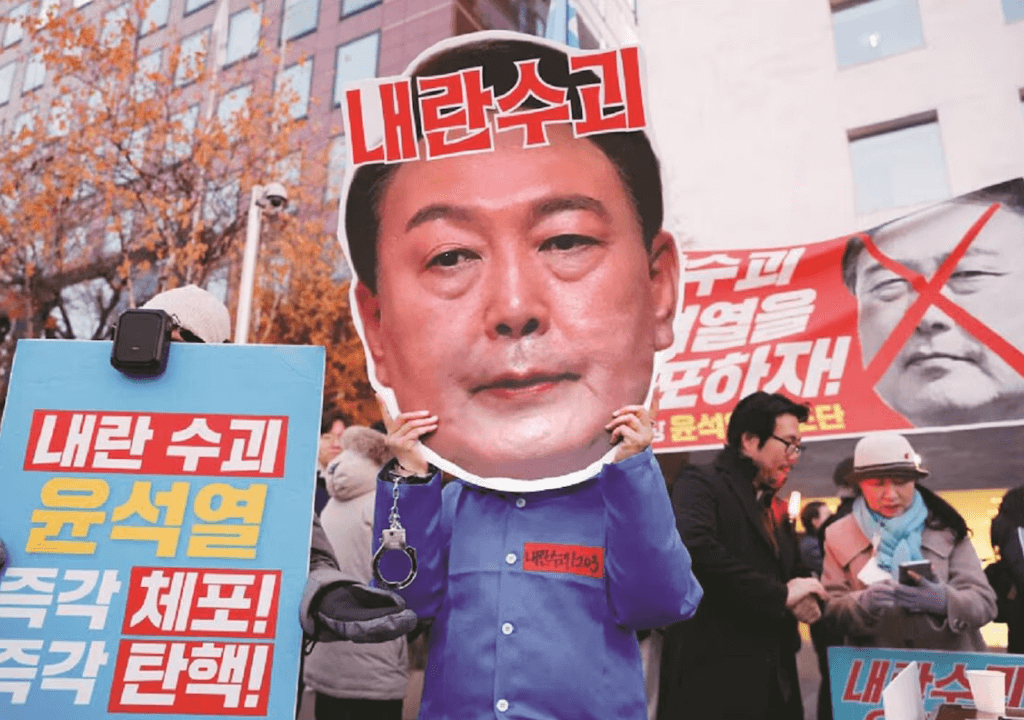In recent decades, South Korea has risen to the status of a cultural superpower, its influence spreading across Asia and around the world. Once overshadowed by Western powers, it now stands as a formidable competitor to the United States. The worldwide success of its music, films, and television dramas has firmly secured the country’s place on the global stage, earning it admiration from audiences far and wide. The glamour surrounding South Korea has become the envy of many, with its cultural exports shaping trends and tastes across the globe. No amount of propaganda could replicate the magnetic pull of its entertainment industry. People across the world have embraced Korean culture, preferring its models, its fashion, and its ideals, transforming South Korea into a dreamland for a rapidly growing international community.
While South Korea may seem like a dreamland to the outside world, within its borders, the nation is increasingly mired in political turmoil, with repercussions that are undermining its economic stability and making life more challenging for its citizens. Once celebrated as a beacon of democracy and free speech—values long tied to the West—the country now grapples with toxic political dynamics that threaten to unravel the very fabric of its democratic ideals. The ruling party and opposition are locked in an unrelenting struggle, hindering efforts to enact policies that could counter the economic downturn, even as bitter disputes over the national budget exacerbate divisions. Last week, these tensions reached a dramatic crescendo when the president, in a shocking move, declared martial law. The decision was quickly blocked by parliament, with the opposition forcing the president to rescind it. What followed was a political spectacle that captured global attention, offering a stark contrast to the polished image South Korea has long projected.
Despite mounting calls for President Yoon’s resignation and the intense humiliation of his actions, the conservative, ruling People’s Power Party remained resolutely united. This steadfast support endured even after confusion erupted in the wake of his martial law declaration, which drew opposition from some senior figures within his own ranks. Still, the party held firm, ensuring Yoon’s position remained secure. Across South Korea, a wave of protests swept through the cities, punctuated by dramatic and even unsettling scenes—one notably saw citizens seizing soldiers’ weapons and turning them back against their enforcers. The opposition, solidified in its demand for Yoon’s removal, found its voice amplified by a media chorus stretching across the political spectrum, all calling for his resignation. Swiftly, they moved toward impeachment, a process that, at first, appeared poised for success, as public sentiment increasingly turned against the president.
However, in the next episode, which unfolded last Saturday, the impeachment process faltered in parliament. Despite the opposition’s strong majority, they were unable to secure the two-thirds vote required to impeach the president. The ruling party, steadfast in its support for Yoon, abstained, effectively blocking the motion and leaving the country’s political crisis unresolved.
Protests against President Yoon continue to escalate, now increasingly directed at the ruling lawmakers who failed to support his impeachment. Although the president narrowly avoided removal from office, his popularity has plummeted, with public opinion polls reflecting a sharp decline in support. Yoon now faces heavy restrictions, his future increasingly clouded by uncertainty. South Korea’s Yonhap News Agency reported on Monday that prosecutors had formally booked Yoon, initiating a criminal investigation. Meanwhile, opposition politicians have accused his party of orchestrating a second coup by blocking his impeachment following the botched declaration of martial law last week. Three opposition parties have filed a complaint against Yoon, his former defense minister Kim Yong-hyun, and martial law commander Park An-su, charging them with insurrection—a crime punishable by death or life imprisonment.
The next presidential election in South Korea is set for 2027. While conservative leaders have traditionally dominated the race, Yoon is not expected to secure a second term. The ruling party’s popularity, already in decline due to economic downturns—evident in the April parliamentary elections—has been further damaged by the martial law debacle. The liberal party, sensing an opportunity, is poised to capitalize. Despite the growing opposition, the ruling party remains unwavering in its support of Yoon, fully aware that an immediate election would spell political suicide. But the critical question persists: how can the president continue his term amid mounting restrictions, ongoing investigations, and a lack of support in a parliament where he no longer holds a majority? Meanwhile, the liberal party’s opposition is intensifying, signaling that dramatic twists and turns lie ahead as the 2027 election approaches.








